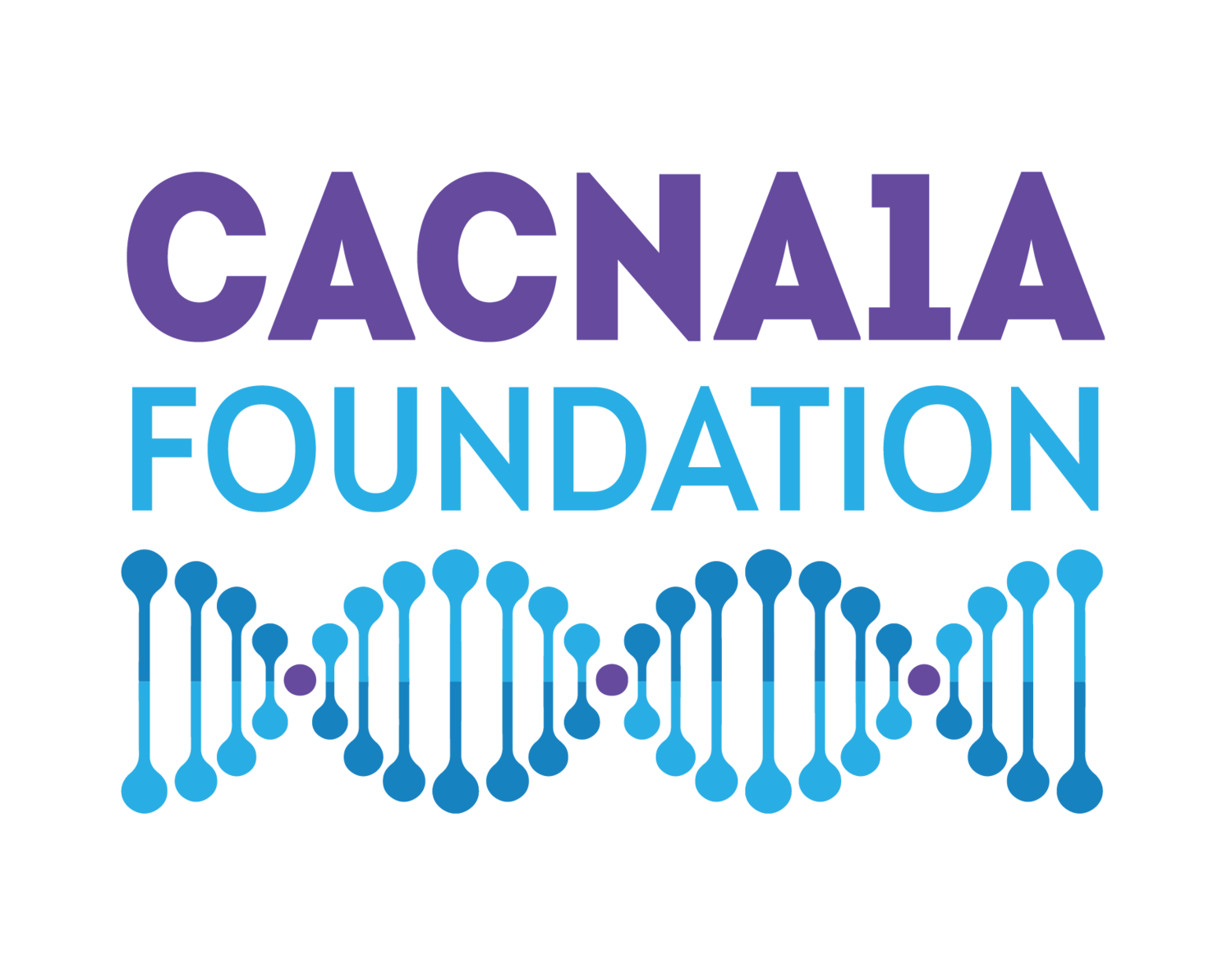Clarify CACNA1A
Welcome to the CACNA1A Foundation blog: updates on current research, advocacy efforts,
therapy options, community activities and real life experiences of caregivers.
Pharmacotherapy of Cerebellar Disorders, Including CACNA1A
Michael Strupp, MD, FRCP, FANA, FEAN, a member of the CACNA1A Foundation Board of Directors, and a Professor of Neurology and Clinical Neurophysiology at the Department of Neurology and the German Centre for Vertigo and Balance Disorders at the Ludwig Maximilians University Hospital in Munich, Germany, where he specializes in vestibular, ocular motor, cerebellar and movement disorders, joins the CACNA1A Foundation to share the latest insights on ataxia treatments, including 4-aminopyridine and NALL (N-Acetyl-L-Leucine), a modified amino acid.
Breaking Ground: CACNA1A Disease Concept Model Study Presented at American Epilepsy Society Meeting 2024
The CACNA1A Foundation is excited to share that data from the CACNA1A Disease Concept Model Study was presented for the first time at the American Epilepsy Society meeting. Led by Dr. Pangkong Fox and Ananya Terala from COMBINEDBrain, the study identified key symptoms impacting quality of life, including decreased expressive language, gastrointestinal issues, and sleep disorders—many not previously reported.
The findings highlight significant caregiver challenges, patient hospitalization rates, and the need for comprehensive treatment approaches. Next steps include publishing the full study and presenting it to the FDA in 2025, marking a critical milestone for advancing awareness and treatment opportunities.
Mom on a mission
Donna Schaare returned to school to pursue a PhD to better support her son, Jon, who faces CACNA1A-related hemiplegic migraines and epilepsy. She recently published her dissertation, “Living with" CACNA1A-related Hemiplegic Migraine, a disease concept model that goes beyond clinical data by capturing the lived experiences of patients and their families. Donna extends a heartfelt thank you to this community and to everyone who participated. "You are the heroes; hopefully, what we learned will bring us closer to a cure."
An ICD-10 Code for CACNA1A
In June 2024, the CACNA1A Foundation submitted a proposal to the CDC to obtain an ICD-10 code specific to CACNA1A-related neurodevelopmental disorder (CACNA1A-NDD), as no current code adequately captures the complex and lifelong clinical manifestations of the disorders associated with this rare genetic disease.
As explained in the proposal, a unique ICD-10 code will serve to track the quality, safety, and efficacy of care for individuals with CACNA1A- NDD. It will enable better identification and tracking of symptoms and co-morbidities across genotypes and is critical for tracking the progression of CACNA1A-NDD phenotypes with age.
Are you worried about a baby? Project FIND-OUT may provide answers…
Babies with feeding issues, problems with movement or muscle tone, or who have missed developmental milestones may benefit from genetic testing. Project FIND-OUT is an important research project to help parents get answers about potential genetic causes of their baby’s symptoms. Learn more about Project FIND-OUT, which provides free genetic counseling and testing for infants in the USA between the ages of 3-12 months, and whether your baby might be eligible.
2023 End of Year Report
The CACNA1A Foundation Board of Directors is proud to present our 2023 Impact Report. As you will see, 2023 was a year of significant progress and we are thrilled to share our collective achievements. We hope you will take the time to read the report and that it inspires you to join us if you have not already. We are #strongertogether!
Learning, Building Community & Celebrating Wins at the CZI Science in Society Annual Meeting
In 2021, the CACNA1A Foundation received a 3-year Rare As One (RAO) grant from the Chan Zuckerberg Initiative (CZI) to build our capacity. In September 2023, we were invited to attend the Chan Zuckerburg Initiative’s (CZI) Science in Society Annual meeting held in Newport Beach, California. There, we joined representatives from other organizations who had received funding from CZI to learn, build community, and celebrate wins. Board members Lisa Manaster and Sunitha Malepati were joined at the meeting by Pangkong Fox, PhD, the CACNA1A Foundation’s Science Engagement Director, who was invited to speak about our patient-driven initiatives with COMBINEDBrain and Rare-X.
Lay Summary of the September 2022 Research Roundtable
The CACNA1A Foundation hosted its first Research Roundtable: Collaborating to Accelerate the Path to CACNA1A Clinical Trials on September 22nd and 23rd at the New York Academy of Medicine in New York City. It was a historic event with 37 of the world's experts on CACNA1A, ion channels, genetics, ataxia, epilepsy, hemiplegic migraine, and eye movement disorders convening for the first time ever. Goals included identifying gaps in understanding how CACNA1A variants lead to disease and developing therapeutic treatments that will have the greatest impact on those living with CACNA1A-related disorders.
The two-day conference was divided into three sessions, each with four presentations, followed by a facilitated discussion. The meeting closed with a wrap-up session focused on next steps for the CACNA1A Foundation and the CACNA1A Research Network to move treatments into the clinical trial pipeline. Read on for a summary of the presentations.
The Value of Data
Would you like a better future for your child? Do you want scientists and pharma to invest in our disease? For researchers to find the small molecule or gene therapy that could help you, your child, or your family member? If so, don't limit the data available to researchers – they need your information!
The COVID-19 vaccine & CACNA1A
In the United States, almost 40% of our population is fully vaccinated. Cities and towns are starting to lift restrictions, and we are beginning to see the light at the end of the tunnel. As a rare disease community, we should be relieved, yet this step brings with it increased anxiety and challenges; We are eager to see our friends and families, yet there is a need to balance security with socialization. With the recent approval by the FDA of the Pfizer-BioNTech COVID-19 vaccine for children aged 12 - 15, many families are wondering if they should vaccinate their children. The CDC is recommending the vaccine for this age group.
The CACNA1A Foundation is now part of CombinedBrain, ensuring more visibility for our disease.
The CACNA1A Foundation is excited to announce that we have been accepted as a member of COMBINEDbrain a non-profit consortium of 25 patient-advocacy foundations, each representing a different rare genetic neurodevelopmental disorder. COMBINEDBrain is devoted to speeding the path to clinical trial readiness for severe rare neurodevelopmental disorders by pooling efforts, studies and data.
The Importance of Signing Up for the CACNA1A Natural History Study
The CACNA1A Natural History Study, designed and vetted by the Chung Lab at Columbia University, will provide valuable information to doctors and scientists about CACNA1A related disorders. Individuals will be asked to fill out detailed health questionnaires and provide comprehensive medical data, including MRIs and EEGs. The study has been approved by Columbia University’s Institutional Review Board (IRB), and all information will be de-identified and safely stored. Annual updates will characterize the course of the disease over time. It is a huge endeavor but by participating and telling your story, you will directly advance research on CACNA1A related disorders and contribute to a cure!
XEN007
For those in the US, there is some exciting news regarding a new medication being developed for our children with Gain of Function variants. The CACNA1A Foundation recently had a call with Xenon Pharmaceuticals, a clinical-stage biopharmaceutical company committed to developing innovative therapeutics that will improve the lives of patients with neurological disorders and central nervous system (CNS) conditions, with a focus on epilepsy.













